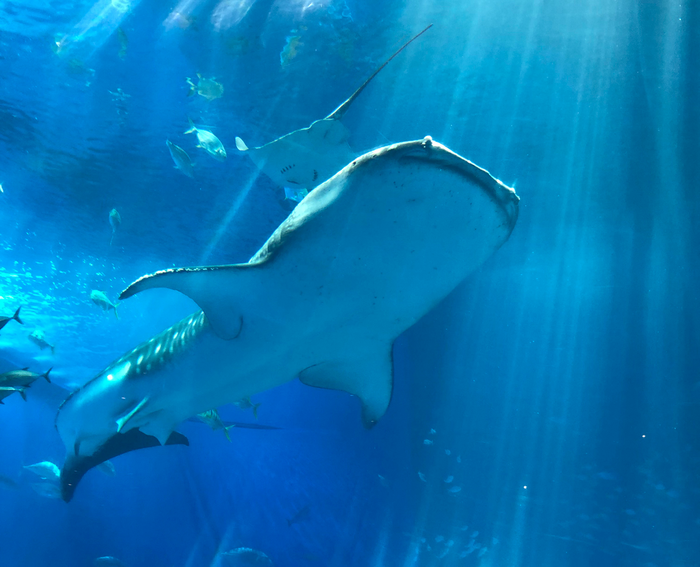A research group including Professors Mitsumasa Koyanagi and Akihisa Terakita of the Osaka Metropolitan University Graduate School of Science has investigated both the genetic information and structure of the photoreceptor rhodopsin, responsible for detecting dim light, of whale sharks to investigate how they can see in the dim light at extreme depths. The research group compared the whale sharks to zebra sharks, which are considered their closest relative, and brown-banded bamboo sharks, which are in the same group: the order orectolobiformes—commonly known as carpet sharks.

Credit: Mitsumasa Koyanagi, OMU
A research group including Professors Mitsumasa Koyanagi and Akihisa Terakita of the Osaka Metropolitan University Graduate School of Science has investigated both the genetic information and structure of the photoreceptor rhodopsin, responsible for detecting dim light, of whale sharks to investigate how they can see in the dim light at extreme depths. The research group compared the whale sharks to zebra sharks, which are considered their closest relative, and brown-banded bamboo sharks, which are in the same group: the order orectolobiformes—commonly known as carpet sharks.
“This research used genetic information and molecular biological techniques to achieve stunning results—without harming whale sharks’ or their biology. Our research approach is to use these techniques to provide clues that reveal the mysteries of how these organisms live,” explained Professor Koyanagi. “The beautiful part is that it even works for species where information is limited, such as large or wild animals that are difficult to observe or follow in their natural habitat.”
The research revealed that the whale sharks’ rhodopsin can efficiently detect blue light—the most common wavelength of light in the deep-sea—because two amino acid substitutions shifted the light spectra that rhodopsin detects, making it sensitive to blue wavelengths. However, one of the amino acid substitutions defies conventional wisdom, as it corresponds to a mutation at a position known to cause congenital stationary night blindness in humans.
The researchers found that the amino acid substitutions make the whale shark rhodopsin less thermally stable, it decays rapidly at 37 ºC, compared to human or other of sharks’ rhodopsin without the substitution. However, at deep-sea temperatures—well below 37 ºC—the functionality of the whale shark rhodopsin can be maintained, suggesting that this unique adaptation evolved for life in the low-temperature low-light deep-sea environment.
Their findings were published in Proceedings of the National Academy of Sciences.
###
About OMU
Osaka Metropolitan University is a new public university established in April 2022, formed by merger between Osaka City University and Osaka Prefecture University. For more research news visit https://www.omu.ac.jp/en/ or follow @OsakaMetUniv_en and #OMUScience.
Journal
Proceedings of the National Academy of Sciences
DOI
10.1073/pnas.2220728120
Method of Research
Experimental study
Subject of Research
Animals
Article Title
Whale shark rhodopsin adapted to deep sea lifestyle by a substitution associated with human disease
Article Publication Date
21-Mar-2023




